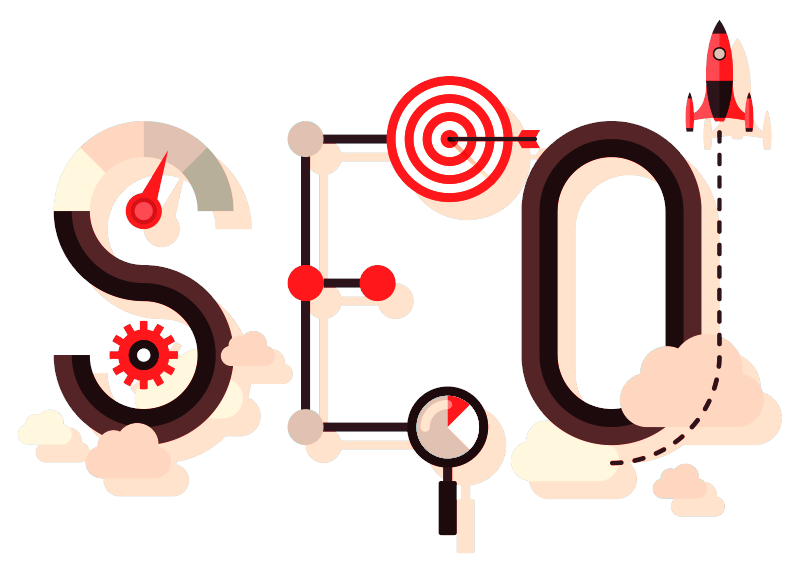In the bustling world of online shopping, more than having a stellar Ecommerce website is needed to attract customers. You must ensure your website is easily discoverable among the sea of competitors. That’s where SEO factors come into play, shaping the fate of your online store’s visibility and success. Most of the ecommerce websites are running on Shopify or Woocommerce.
This article delves into the Crucial E-commerce SEO Factors You Can’t Afford to Ignore.
Importance of E-commerce SEO
E-commerce SEO (Search Engine Optimization) is very important in the online business, which is always changing. As more and more people shop online, companies need to realise that having a great website isn’t enough. E-commerce SEO is a key approach that can take your online store to heights you never thought possible. Let’s take a closer look at why E-commerce SEO is so important for your business:
Before we get into the specifics of Ecommerce SEO factors, it’s important to remember that SEO is always changing. Search engines like Google always change their algorithms to give users the best and most useful results. So, to stay visible online, keep up with the latest search engine optimization trends and best practices.
On-Page SEO Factors
Title Tags and Meta Descriptions
Title tags and meta descriptions are your website’s first impression on search engine users. Craft compelling and keyword-rich title tags that accurately represent the content of each page. Similarly, write brief and clear meta descriptions to entice users to click through your site.
High-Quality and Relevant Content
Content is king, and that holds for e-commerce SEO as well. Create informative, engaging, and unique product descriptions. Avoid duplicating content from other websites, as search engines penalise duplicate content. Well-written content helps with SEO and provides value to your customers.
Optimized Product Images
Visual appeal is crucial for Ecommerce, but optimising your product images for SEO is essential. Use accurate file names and alt text for your images, making it easier for Google search engines to understand what they represent.
User-Friendly URLs
URLs that are clear and easy to use make the user experience better and help with SEO. Include important keywords in your URLs so that search engines and users can easily figure out what the page is about.
User-friendly URLs, also known as “clean URLs,” are web addresses that are easily comprehensible by humans and succinctly convey the content or purpose of a web page. They are designed with users in mind, clearly indicating what to expect when they click on a link. Unlike cryptic URLs composed of strings of numbers, symbols, and letters, User-Friendly URLs are structured, meaningful, and easy to remember
Internal Linking
Internal links connect many different pages on your website, providing users with more navigation options and helping search engines understand your site’s structure. In other words Internal linking is a fundamental aspect of website structure and optimization that often goes underappreciated. Beyond just navigation, internal linking can boost SEO, enhance user experience, and guide visitors through the depth of your content. This comprehensive guide will delve into the intricacies of internal linking, explaining its benefits, best practices, and how to implement it effectively.
Mobile-Friendly Design
A mobile-friendly website has become increasingly important in the last five years as the mobile user base has grown. Google considers mobile-friendliness a ranking factor, so ensure your site is responsive and provides an optimal experience on all devices.
Page Loading Speed
Page loading speed, often referred to as website speed or page load time, represents the time it takes for a web page’s content to fully display in a user’s browser after they click on a link or enter a URL. It’s measured in seconds and fractions of seconds. While a delay of a mere second might seem insignificant, research indicates that even a small increase in page load time can lead to a substantial drop in user engagement, conversions, and overall customer satisfaction.
Schema Markup
Schema markup helps search engines understand your content’s context better, leading to richer search results. You can make your listings more appealing and informative by using schema markup for goods, reviews, and other relevant information.
External Linking
External linking is a powerful tool that can significantly impact your website’s authority, credibility, and overall visibility. Often referred to as outbound or external links, these connections extend beyond the borders of your site, creating bridges to other relevant and authoritative sources on the internet.
Technical SEO Factors
Site Structure and Navigation
A well-organized site layout and easy-to-use navigation make it easier for people to use your website and pages and for search engines to crawl and index them.
XML Sitemap
An XML sitemap of your website provides search engines with a roadmap of your website, helping them discover and index your content more efficiently.
Robots.txt File
The robots.txt file tells search engine bots which pages to crawl and which not. Properly configuring this file ensures that search engines focus on your important pages.
Canonical Tags
Canonical tags help you identify duplicate content issues by specifying the same version of a page when similar content exists on multiple URLs.
HTTPS and Security
Switching to HTTPS secures your site and is a ranking factor. Secure websites inspire trust and confidence in users.
Mobile Responsiveness
We can’t stress enough the importance of a mobile-responsive design. Google prioritises mobile-friendly websites, especially with its mobile-first indexing approach.
Crawl Errors and 404 Pages
Regularly monitor and fix crawl errors and 404 broken link pages to ensure a smooth user experience and maintain search engine rankings.
AMP (Accelerated Mobile Pages)
Implement AMP for your Ecommerce pages to provide lightning-fast loading times on mobile devices, improving user experience and boosting rankings.
Off-Page SEO Factors
Backlink Building
Building high-quality backlinks from authoritative websites enhances your Ecommerce site’s credibility and search engine rankings.
Social Signals and Engagement
Social media activity and engagement indirectly influence SEO by driving traffic, brand visibility, and potential backlinks.
Influencer Marketing
Collaborating with influencers can expand your reach, increase brand awareness, and potentially lead to valuable backlinks.
Online Reviews and Reputation Management
Positive online reviews build trust among potential customers and contribute to local SEO and overall search engine rankings.
Local SEO Factors for E-commerce
Google My Business
Set up a Google My Business account and tweak your listing to appear in nearby search results and Google Maps.
Local Keywords
Use local keywords in your content to reach people in your area who are looking for goods or services.
Localised Content
Create eye-catchy localised content, such as blog posts or landing pages, that caters to the interests and needs of your local audience.
Customer Reviews and Ratings
Encourage customers to leave reviews and ratings, boosting your site visibility in local search results and building trust.
User Experience and SEO
Clear Navigation and Site Structure
An intuitive navigation system and clear site structure contribute to positive user experiences and better search engine rankings.
Responsive Design
Responsive design ensures your website looks user-friendly and functions well on all devices, enhancing user visibility and SEO.
Fast Loading Speed
Quick loading times are vital for user retention and SEO success. Optimise images, minimise code, and leverage caching to improve speed.
Mobile Optimization
Mobile optimization isn’t just a trend—it’s a necessity for SEO success. Prioritise mobile usability and performance.
Engaging and Relevant Content
Content that resonates with your target audience keeps them engaged, encourages sharing, and supports your SEO efforts.
Conclusion
E-commerce SEO isn’t a one-time task; it’s an ongoing process that requires dedication, adaptation, and a focus on technical and user-oriented factors. By paying attention to these crucial E-commerce SEO factors—on-page, technical, off-page, local, and user experience—you can enhance your website’s visibility, attract more organic traffic, and, ultimately, help your online store do well. If you are working on SEO for your ecommerce website, you have to focus on all of these factors, it will help you to gain ranking on google. Or if you don’t have time or any other situation and you can’t focus on SEO. You have to hire SEO experts or Buy SEO membership that help your ecommerce websites to gain organic traffic through SEO. There are many SEO companies available.
Read Dive is a leading technology blog focusing on different domains like Blockchain, AI, Chatbot, Fintech, Health Tech, Software Development and Testing. For guest blogging, please feel free to contact at readdive@gmail.com.





